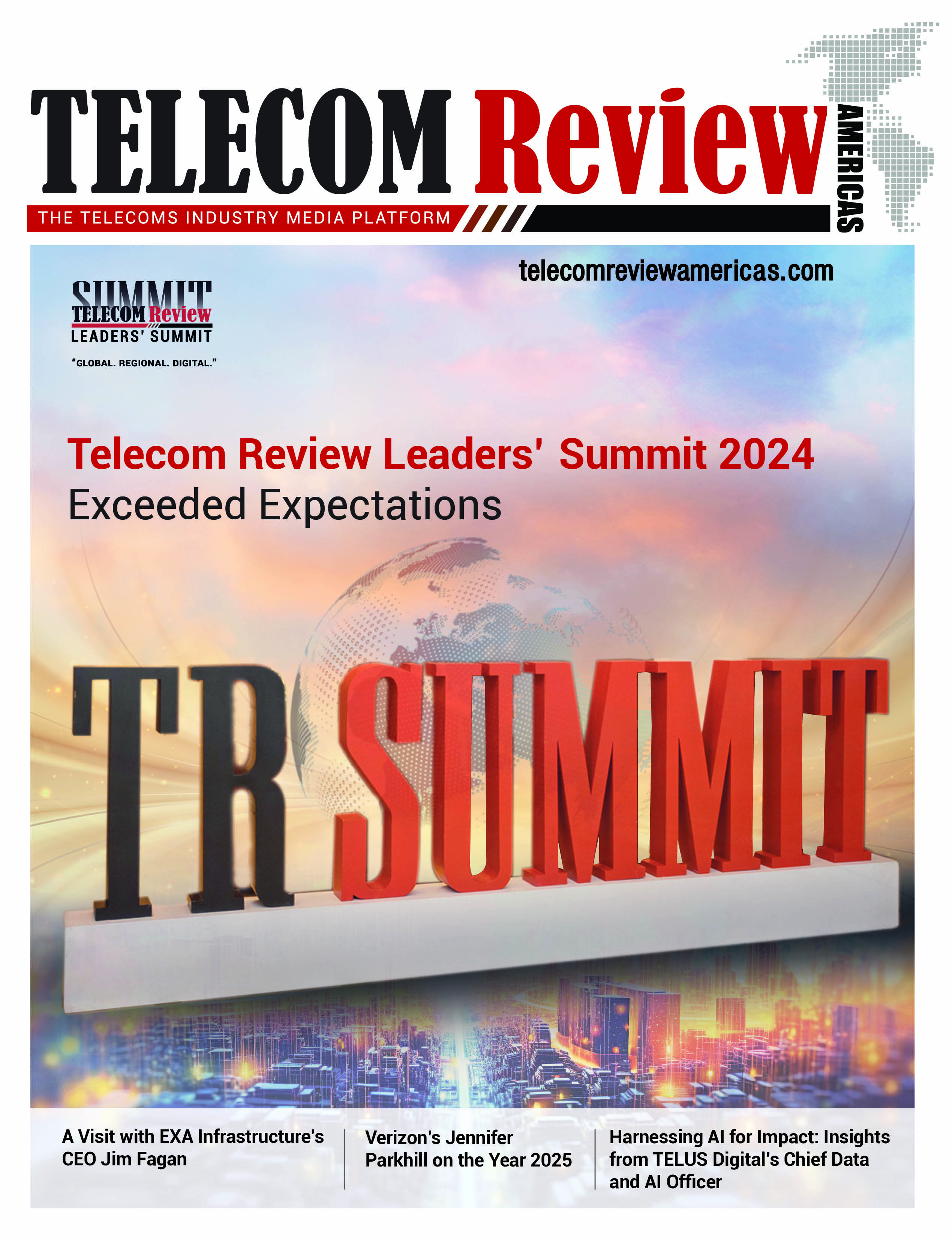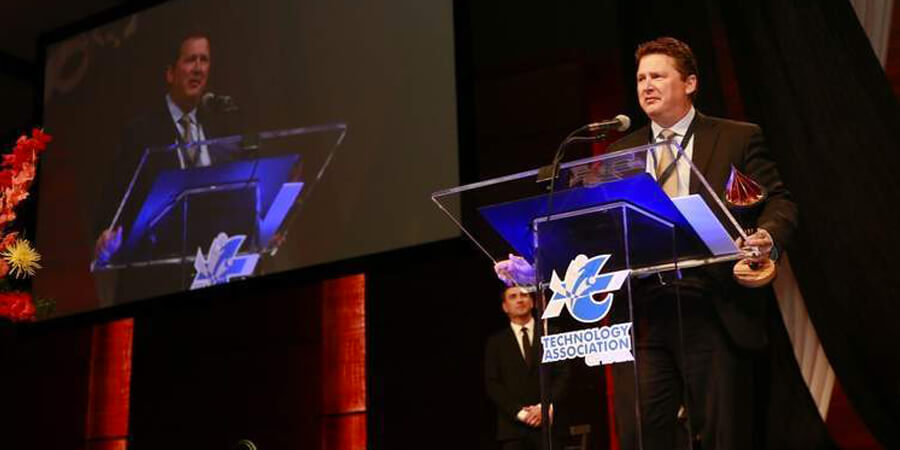Involta orchestrates IT transformation journeys using well-defined and rigorous processes to deliver hybrid cloud solutions, consulting and data center services tailored to our clients’ business drivers. They pair strategic consulting with the unique ability to leverage owned colocation facilities and infrastructure assets to deliver highly secure and reliable solutions every day.
Telecom Review recently visited with Bruce Lehrman, Founder and Chief Executive Officer of Involta who is best known for his entrepreneurial spirit and ability to build world-class technology organizations. He has been involved in three greenfield business start-ups and has also worked with large, nationally recognized brands. In 2007 Bruce founded Involta LLC, a privately held Hybrid IT services company headquartered in Cedar Rapids, Iowa.
Sure, the message of “digital transformation is imperative for every business” can be heard loud and clear in any publication that discusses staying relevant in today’s digital world. But what’s not so clear to most leaders is what digital transformation actually means, as well as how their business can (and should) transform.
With a strong management team Involta is poised to grow further. In addition they have a very strong Board that includes industry leaders such as Steve Gray and Gillis Cashman.
Even before the pandemic ravaged the world, smart city initiatives were intelligently being deployed across the globe. Despite the current business landscape and economic turmoil, cities must continue to move forward with the advanced network infrastructure, data center integrations and applications required to spark smart city implementations, affording these cities a competitive edge while boosting future opportunities for local businesses employment and sustainability efforts.
Most high-tech developments typically come with some debate and smart “connected” cities are no exception. Heightened concerns regarding privacy and data security leave many questions unanswered and, in some cases, may derail or halt the adoption of smart city technologies altogether. Ultimately, successful urban innovation will rely on municipalities to leverage data-analytics, the cloud, Machine Learning (ML), Artificial Intelligence (AI) and cutting-edge IoT sensors to empower smart city deployments.
Getting Smarter
With each technology breakthrough, transformative smart city initiatives are improving and headed to the next level. One of the major benefits of a hyperconnected environment is its ability to attract and connect highly-skilled workers and companies. From start-ups to established enterprises, cities that adopt state-of-the-art technology and deploy smart city initiatives are becoming increasingly desirable.
As communities employ citizen-centric solutions, products and services, the overall technological development in that area will rise. Cities that do not adopt digital infrastructure risk a backward outcome, where residents and businesses will pursue opportunities in cities that are carrying out ingenious initiatives.
The Generation of “Work from Anywhere”
Amid the new abnormal, working remotely has swiftly become the norm. At the same time, not everyone prefers to work from home. Today’s modernized workforce would rather work from anywhere, and smart cities will empower this new model. Fueling this massive shift will heavily command robust network connectivity.
Post-pandemic, shared commercial spaces present a viable and safer alternative to large, corporate environments. At the same time, some may prefer a hybrid working model. There’s no doubt that the work-from-anywhere generation will flock to smart-enabled cities. The plethora of new technologies will further empower this dynamic generation to be even more agile, efficient and effective.
Connectivity is King
Having the ‘right of way’ on the smart-city-superhighway will be vital to steering smart city deployments. In a smart city, everything is connected—even trash cans. Thus, an increase across public sector investments in broadband throughout the country, especially in rural areas, is essential to ensure that affordable connectivity exists.
In terms of rebuilding the damaged economy, broadband could also be a pertinent investment for the government to make – bonding bills don’t always pertain to buildings, roads and bridges. As we continue down the road to recovery, building and investing in connected cities worldwide will only make us smarter, more durable and prepared for the next crisis.
Smart Cities in Action
Across the world, cities are saving exponentially by deploying IoT-powered devices and sensors. For example, in San Diego they are reaping the benefits of a $2.5 million annual savings by utilizing smart streetlights. America’s ‘City in Motion’ connects its lighting infrastructure to a wireless network, enabling the city to monitor and manage lights virtually. While Chicago’s, “Array of Things”, significantly improved its air quality by deploying a network of sensors. These sensors track air pollutants’ presence to predict air quality incidents, in which the data is made public to their citizens.
Across all notable smart cities, innovation is underway with a myriad of features and technologies. Leading the charge is the deployment of 5G and the OT security it will require as it unfolds. Cameras have been crucial in many cities, from dash-cams to body cams. Urban planning and operations are using agent-based simulation and modeling to explore essential factors and scenarios across lawmakers and the public. Contactless technology is assisting in a multitude of ways, from payments to utility readings and more.
Smart, Safe and Healthy
In terms of public health, several budding devices are poised to produce real-time, hyper-local personal health information meant to keep citizens safe and healthy in ways we haven’t seen before – from stick-on sensors that can provide 24/7 respiratory activity tracking to AI-powered long-distance body temperature scanners at train stations. Existing devices with new uses are also going to help, such as smartwatches set to monitor quarantine compliance and internet-connected thermometers that assess symptom trends. Automated devices like these, combined with manual tools like contact tracing and healthcare check-in smartphone apps, create an entirely new sphere of health-related data.
Edge computing now plays a crucial role in virus combat because being able to store, aggregate and quickly move data securely is, in a way, a battlefront unto itself. The edge, including strategically placed data centers, must stay sharp.
The use of modern technologies and data to enhance economic social, and environmental challenges is the foundation on which smart cities are built. As smart cities and edge evolve, IT leaders must change their approach to security, to overcome some of the uphill battles associated with smart city innovation. Furthermore, municipalities must keep the public informed and involved so that everyone stays connected in more ways than one.
As smart cities continue to emerge, data centers will continue to play an essential role in their progress and success. Involta has evolved to meet the ever-expanding demands on secure, future-ready data centers. The company's robust edge strategy enables businesses and municipalities to consume their data effectively, leveraging its extensive network assets. With world-class facilities, excellent uptime reliability, enhanced security and modern infrastructure,
Even if you aren’t as far along in your digital transformation as you’d like to be, that’s OK because most organizations are in the same boat. Getting there can be incredibly difficult because it requires not only a shared strategy and vision across your organization, but also a strong commitment to change.
Gartner found that “eighty seven percent of business leaders say digitalization is a company priority, yet only 40% of organizations have brought digital initiatives to scale.” If you’re one of the many organizations that’s having trouble getting started or taking the next step in your company’s digital transformation, Involta is a true Hybrid IT Solutions Provider, and has the people, process, and technology to help customers create a more holistic approach to IT that will support and enable digital transformation efforts, regardless of where you are in your journey.

































